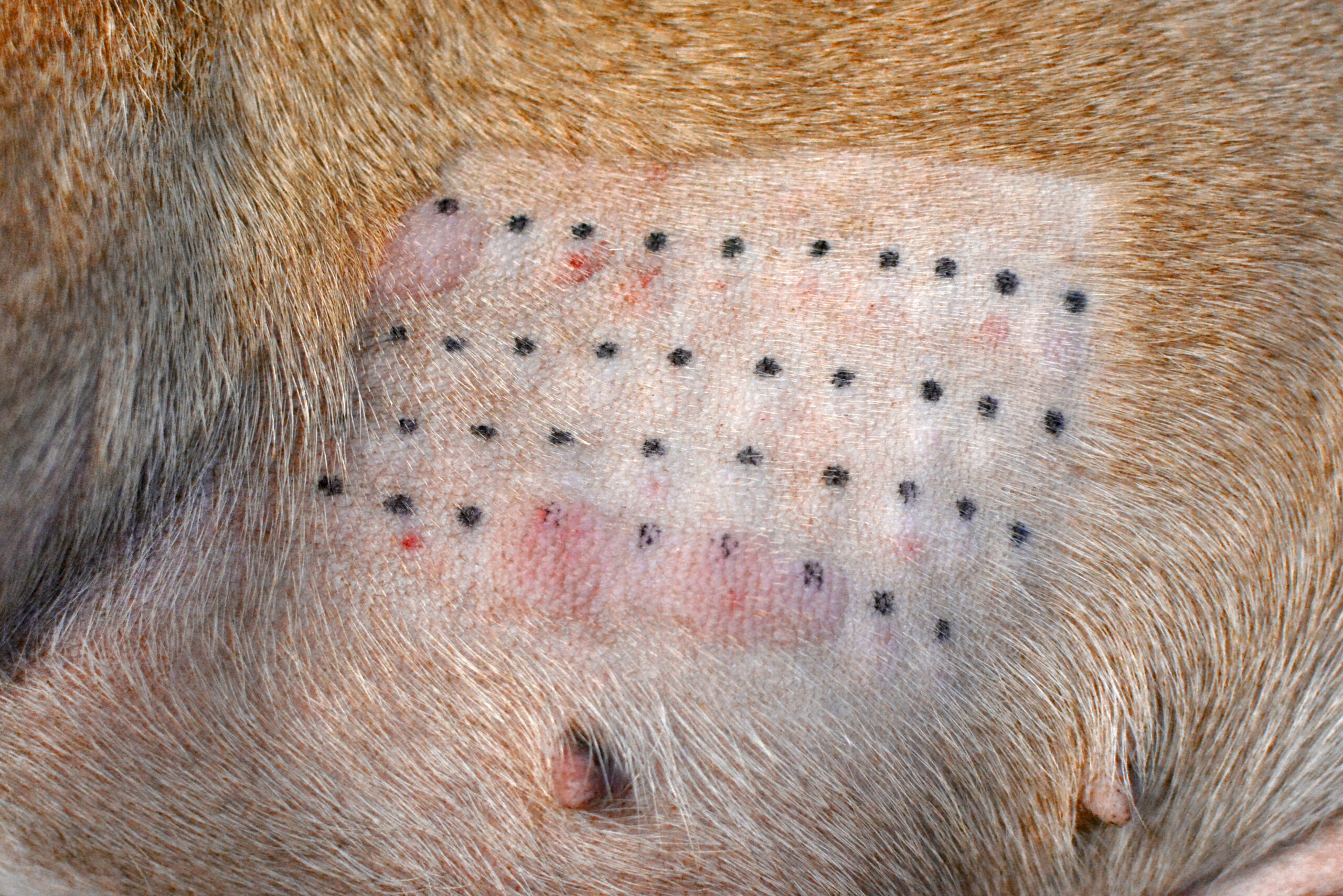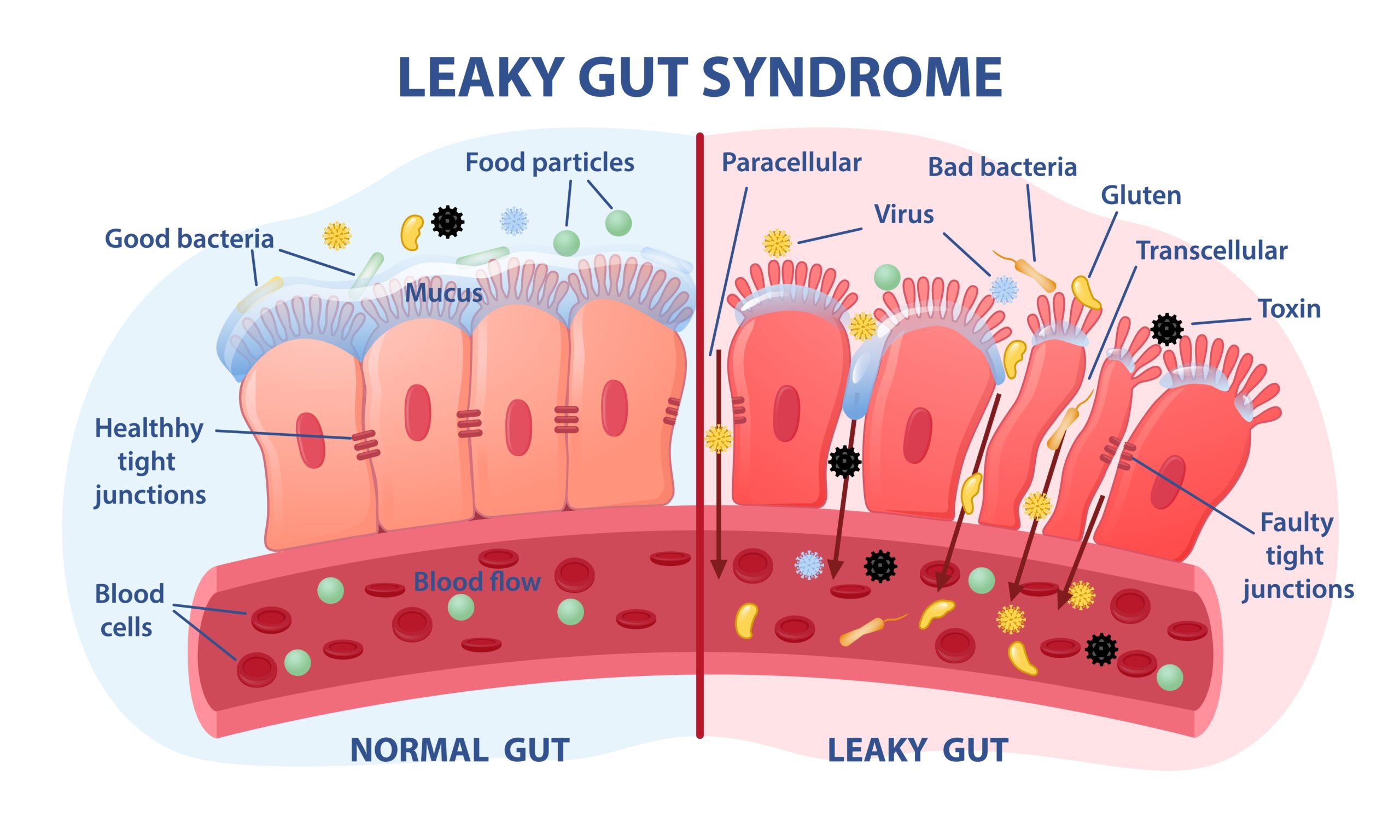As the days get longer and the weather warms up, the wattle starts to bloom and those of us with springtime allergies start to feel the dreaded itch at the back of the throat. Similarly, our dogs may start to scratch more than usual, lick their paws, rub their eyes and shake their ears.
For all its magical, sunny afternoons, Spring can be a battleground for those of us who suffer seasonal allergies, and even more so for our animals who can’t tell us what is causing theirs. Because while for us it’s usually a pretty clear cut case of pollen being the culprit, dog “allergies” may worsen in the springtime, but can be caused by a number of underlying issues that are present year round.
In fact, we are hearing more and more from pet owners that their dogs have food allergies. Dr Conor Brady shares in his Feeding Dogs book that in actuality “A food allergy is rare (1-3% of the dog population). It is the inappropriate response by the body to an everyday allergen. It’s sudden, dramatic, very serious and involves the IgE antibody. It happens in the blood”1
Food intolerance is far more common (we’ll go into more details further below).
What about the products that are “designed” to protect our pets?
Other causes of these ‘allergic symptoms’ can be attributed to a dogs response to over vaccination and too many chemicals like tick and flea treatment preventatives.
Vaccine bases are derived from chicken embryos and bovine (cow) which we start to give to puppies at a very young age, and then continue annually for many dogs. Now the nature of the vaccines is that they are designed to set up an immune response, so unsurprisingly many dogs end up with chicken or beef allergies. The body has been ‘taught’ to recognise it as a foreign invader and inflammation occurs as a result.
Then there are the combined treatments (for the convenience for us pet owners) that cover everything from heartworm, intestinal worms, fleas and ticks that are being given every few weeks. Just consider the amount of man-made chemicals that are bombarding the dog’s natural immune system and microbiome.
We are not saying you shouldn’t use these to help protect, just to be aware how often you are using them and if you are using it year round “just in case” as opposed to using it when the season comes around.
Being aware (if you can be) of what chemicals have been used on public grass areas is important. Take notice of council notification when weeding of a dog park is being planned as the chemical sprays and fertilisers used on lawns, parks and gardens can cause reactions or irritation to the skin when our dogs are rolling around on the grass. Smaller breeds can suffer more due to their undercarriage being much lower to the ground.
Of course some dogs are primarily irritated by pollen, much like we are, but others experience issues that are a bit more complex. Some dogs can be allergic to particular grass varieties, which is a terribly challenging problem to have and typically involves lots of wiping down paws and, sadly, avoiding grassy play as much as possible. Naturally this worsens in Spring, but grass allergies can also be exacerbated by an inflammatory diet and, ironically, overuse of medications intended to treat it.
Other causes of allergy-like symptoms?
An inflammatory diet is a common cause of an itchy dog, regardless of the time of year, and is often mistaken for a food allergy. While true food allergies are quite rare and are generally not caused by eating certain foods (rather, eating certain foods triggers an acute allergic reaction), an inflammatory diet can burden the system over time and may present in a number of ways, such as a sudden or gradual intolerance to certain foods, persistent digestive upset, dull or greasy coat, rashes and constant scratching, inflamed paws and paw licking, gunky eyes and irritated ears.
How to determine if it’s an allergy or intolerance
There is considerable overlap between the symptoms of true allergies, intolerance and stress caused by an inflammatory diet, and working out what you are dealing with is half the battle. True allergies can be tested for, but these tests are expensive and not always accurate. A full elimination diet over several months is the best way to get to the bottom of a suspected food allergy or intolerance. If you’re able to determine the source of a true allergy, the solution is fairly straightforward; you must avoid that food forever.
If your dog is experiencing some of these symptoms but has previously eaten similar foods without any major issues, you are likely dealing with inflammation or a food intolerance (or both).
An imbalance of Omega 3 and Omega 6 can cause inflammation
One cause of inflammation in the body that is related to diet is an unbalanced ratio of omega 3 and omega 6 fatty acids. While both of these fats are essential and deficiencies of either can cause serious health issues, in reality the modern diet (both human and canine) is overflowing with omega 6 and low in omega 3. This is a problem because, when present in excess, omega 6 has inflammatory properties, whereas omega 3 is anti-inflammatory.
Processed dog foods are generally upwards of 50% grain or legume based, neither of which contain digestible omega 3 for dogs, but DO contain absolutely loads of omega 6. Meat in these foods generally comes in the form of meat meal which has been heat treated to the point any natural fat is rendered off and must be added back in later during the cooking process. These fats oxidise and goes rancid quickly, meaning the added omega 3 in processed dog food may actually be doing more harm than it is good.
This issue of poorly balanced fatty acids is compounded when we look at modern farming methods. Chicken – a common scapegoat for all things inflammation – is naturally higher in omega 6 (and it always has been). However, chickens of the past would have scavenged on pasture for insects and grasses that contain a balanced fatty acid ratio, whereas now they typically eat food based on ingredients like corn, wheat and soybean meal, all of which are loaded with omega 6.
How a leaky gut can impact on allergies and intolerances
Another major factor linked to allergies or intolerances is intestinal permeability or hyperpermeability. The wall of our intestines have tight junctions that prevent unwanted or harmful substances from passing through into the bloodstream, while allowing water and nutrients to cross over. If the intestinal wall has increased or hyperpermeability, bacteria, toxins and even food proteins may enter the bloodstream and cause inflammation or an immune response. This is often referred to as Leaky Gut Syndrome and has been linked to conditions such as Crohn’s Disease, Coeliac Disease, food allergies, IBS and even diabetes.
This is a bit of a chicken and the egg situation in the sense that individuals with these conditions have been observed to have increased intestinal permeability, but the condition is not necessarily caused by it; in many cases it is the other way around and it is these conditions that compromise the integrity of the intestinal wall. But in some cases it’s both. For example, food allergies can cause increased intestinal permeability or leaky gut, which then leads to food proteins entering the bloodstream and causing an immune response, leading to additional food allergies.
Similarly, a poor diet can lead to poor gut health, which is linked to intestinal permeability or leaky gut, thus resulting in the manifestation of food allergies triggered by proteins entering the bloodstream. In this case it’s not necessarily the protein (eg. chicken) that caused the food allergy, but rather repeated feeding of a highly processed and unsuitable food containing chicken led to the circumstances that resulted in a food allergy.
Medication can lead to a leaky gut
Another cyclical trigger for leaky gut can be the repeated use of anti-inflammatory drugs, which are often prescribed to treat “allergies.” These have been studied and definitively linked to increased intestinal permeability[1], meaning that it’s essential to try and break the cycle of medication and treat the underlying cause of the inflammation if we are to have any success in resolving it long term.
How to heal a leaky gut
Depending on the severity, these reactions can often be reversed by healing the gut and transitioning to an anti-inflammatory diet (such as The Butcher’s Dog), loaded with digestible proteins, antioxidants, pre and probiotics, and omega 3 fatty acids. If an allergy has taken hold, unfortunately you will need to avoid that protein forever, but this is relatively rare. In some cases it can take some time to reverse the damage and restore the integrity of the intestinal walls, but this can be achieved with patience, good food and support from some gut health targeted supplements. Fortunately, in our experience it’s extremely common that dogs with these symptoms who are eating a processed diet simply get better once the food is changed to a natural, nutritious, species appropriate diet. So enjoy the sunshine, but avoid the temptation to reach for the anti-inflammatories at the first sign of springtime allergies.
HANDY TIPS!
- Dogs can take a human anti allergy tablet like claritine for seasonal allergy
- Betadine foot baths are great for dogs who chew their paws or have grass allergies.
[1] Brady, C., ed. (2020) Feeding Dogs. London: Farrow Road Publishing
[2] https://doi.org/10.1007/s00535-008-2266-6































































